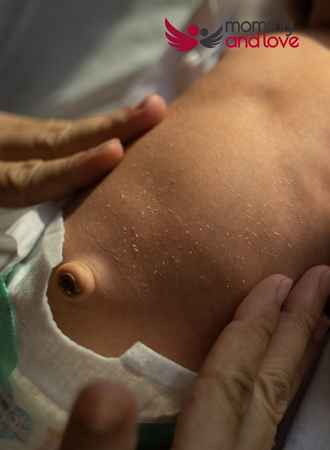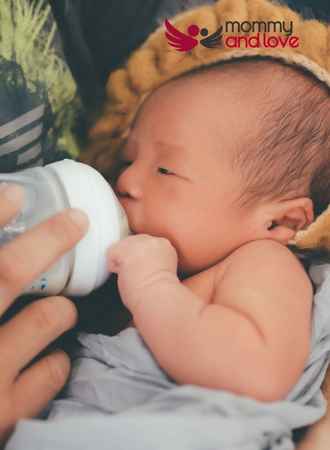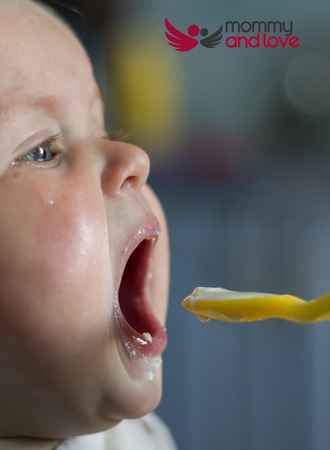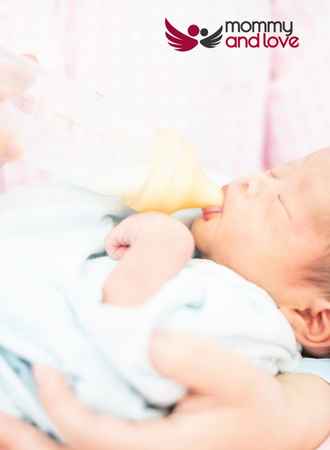There is truly nothing more special than bringing you new baby home. In those early days and weeks, as you fall in love with the new addition, every day is a new adventure.
Many parents fret over the little things – after all, you’re only getting to know this new and fully dependent little human, and suddenly, there’s a stench like rotten eggs and you can’t quite believe it came from the tiny baby in front of you.
I bet you never expected to find yourself researching smelly farts – that part doesn’t tend to show in the parenting brochure!
Babies fart just about as often as adults do; it’s a natural, perfectly normal function.
However, if you find that your baby farts a lot, that they have particularly smelly gas or that your baby experiences pain passing gas, it may be worth checking in with your doctor.
In the meantime, we’ll take at the common causes of excessive farting and stinky gas in this post.
Why Do Baby’s Fart?

Babies fart about as often as adults do, around 15-20 times a day. It’s a healthy, important way of getting rid of trapped gas.
Odd as it can be to hear tiny newborn farts, it’s actually a sign that the baby’s system is working well-provided that your baby is happy and there’s no foul-smelling gas.
Unfortunately, if your baby has excess gas, you might find that they show signs of pain when they pass gas; legs up, excessive crying, red face and fussiness.
Often painful gas is accompanied by an unpleasant smell, like rotten eggs.
You can try to help the baby relieve gas by gently massaging the baby’s tummy. Most baby ranges carry a baby massage oil, which will help your baby fart, and should relieve the pain.
You could also try very gently moving your baby’s legs in a bicycle motion, to help them pass gas.
As to why your baby produces excessive gas, one of the most common, and easily fixed issues, is that babies can easily swallow too much air when they are feeding.
This is true for both breastfed babies and formula-fed babies.
For formula-fed babies, you can try swapping to a slow flow nipple, keeping the bottle elevated during a feed to ensure that baby isn’t swallowing air.
For breastfed babies, the breastfeeding mother can work on the baby’s latch, to ensure that baby has a good attachment to the breast, avoiding the swallowing of air.
What Might Make Baby’s Gas Worse?

As we covered above, baby gas is normally a sign that your baby’s body is doing what it should be to get rid of excessive gas.
In normal cases, your baby’s gas shouldn’t have a strong smell, at least not most of the time.
They should also feel fairly comfortable when they pass gas.
Regular foul-smelling farts or baby farts accompanied by pain may warrant you looking a little closer into the cause, however.
Baby’s digestive system is still immature

Like every other system in your baby’s body, your baby’s digestive system is new to this world and very much still developing.
Newborn farts can be very frequent as the developing digestive system starts to adjust to the world.
Remember, in the womb, your little one received nourishment through the placenta, while in the outside world, those delicate little babies’ tummies must learn to digest baby formula or breast milk.
It can be a shock to the system!
It is thought that breast milk is easier to digest than formula, so it’s possible that bottle fed babies may have stinky farts more often than the breastfed baby, particularly in the early days of the immature digestive system.
That said, breastfed babies can be just as bad when it comes to swallowing air, which is known to cause a gassy baby.
Constipation

Again, bottle-fed babies can be more prone to constipation. Constipation is also a common issue for all babies when they commence solid food- it ties into that immature digestive system too.
In the early days, the baby stool should be soft, but that doesn’t stop the digestive system from being sluggish in removing that waste promptly. The result will be smelly gas until the blockage is removed.
When your baby starts on solid foods, you’ll find that constipation is fairly common, so be sure to offer extra breast milk or a little extra water.
Baby’s farts can already be extra stinky with weaning, even without constipation!
Stress

Babies pick up a surprising amount when it comes to the environment around them. If the atmosphere is tense, or if you yourself are very stressed, your baby may absorb that.
Unfortunately, stress can have an impact on the gut, so you can expect baby’s gas to become more frequent if your baby is stressed or ill.
Feeding Issues

Babies swallow air when they feed, whether you have a bottle or breastfed baby.
Tongue ties can worsen this issue, and are worth discussing with your doctor if you notice that your baby struggles to latch on to a bottle or breast well during feeding.
If this is the case you would tend to notice milk leaking out the sides of baby’s mouth. This can increase baby’s gas or lead to smelly gas. We have a great post about How Tongue Tie affects Breastfeeding if you’d like to learn more!
Always burp your baby after a feed, this helps get rid of baby gas without letting it build up in the tummy, causing stinky farts.
If your breastfed baby is a very gassy baby or you notice your baby’s farts smell, the easiest thing to look at first would be feeding position.
Go back to basic with feeding habits to make sure your positioning is comfortable.
Ensure that your baby has a good strong latch. If they don’t, they will be swallowing air which will have your baby farting.
Bottle Flow

Another thing to consider when it comes to breastfed baby gas smells, would be sensitivity or intolerance to foods that you are consuming. We will be covering food sensitivity a little more below.
For the bottle-fed baby, ensure that the flow of the bottle nipple you are using isn’t too fast that your baby can’t keep up.
Ensure that the bottle is elevated during a feed, so that your baby isn’t swallowing air as they drink- you want the teat to be filled with milk, not air!
When you shake up your baby’s formula, be sure to let the bottle sit for a moment to let the air bubbles settle, before giving to your baby.
If you’re concerned that Formula isn’t agreeing with baby, we can help you out with more information on this!
Intolerance or Food Sensitivity

For formula fed babies, your baby could be intolerant or even allergic to an ingredient in the formula. Sensitivity to cow’s milk proteins is fairly common and absolutely will cause smelly gas.
The cause of breastfed baby gas smells can be tricky to pinpoint, as they are exposed to all of the foodstuffs that their mother eats.
Cows Milk
Cow’s milk protein is also a potential issue here.
Anecdotally, some breastfeeding moms report that their breastfed baby’s gas is worse when the mom has been indulging in high protein foods such as eating beans or red meat.
Solid Food

You may notice a change in your baby’s fart smell when they begin to eat solids.
Keep an eye on patterns- it may be that certain foods make your little ones’ farts stink.
As with adults, a diet high in meat compounds, foods rich in protein and fiber-rich foods can be linked to changes in a baby’s fart smells.
If you are concerned about sensitivity, intolerance or allergies, do speak to your doctor- especially if your baby shows other signs of food allergies in babies such as diaper rash.
Does Breast Milk make baby’s gas smell worse?

The jury is out on this one! Every baby has its own digestive system, which copes with digestion differently.
On one hand, babies fed by formula are thought to experience constipation more frequently, on the other, they aren’t exposed to the same range of foods that breastfed baby’s are, through their mothers milk.
It’s thought that certain foods might affect gas smells in the breastfed infant (think cabbages, asparagus and leafy greens).
Breast milk is known to be much easier for a newborn to digest, but, that said, anyone who has had a breastfed newborn will know that breastfed babies can have pretty serious blowouts- and gas smells that match!
Why do my baby’s farts smell so bad?

Before weaning on to solid foods, your baby’s gas shouldn’t regularly smell too horrendous. If it does, a trip to your family doctor to rule out stomach infection or intolerance would be wise.
Beyond weaning, certain foods may trigger particularly bad gas- and these are often the same foods that can have similar effects on adults!
There are a few specific smell types that tend to be associated with specific causes though- we’ll pop the most popular ones below.
Sulfur

Sulfur smell, a smell like rotten eggs, is notoriously linked to the consumption of red meats, or vegetables such as beans, kale, Brussel sprouts or broccoli.
Whilst the smell of rotten eggs can be highly unpleasant, provided that the baby is comfortable, this shouldn’t actually be a problem.
But, we get it, you don’t want your blessed bundle to smell like rotten eggs- least of all, because few people will probably blame that rotten eggs smell on the baby, and you may just get the blame!
You can tackle this by reducing the quantities of the foods mentioned about in your/your baby’s diet.
Red meat contains higher amounts of sulfur compounds, so maybe the best food group to tackle if you want to get rid of that stench like rotten eggs!
Sour Milk

Farts that smell like sour milk may indicate that your baby has difficulty in digesting lactose, which in turn causes a build-up which smells like…sour milk.
There are a few ways to tackle this issue.
First of all, if your baby is breastfed, take a look at your breastfeeding habits.
The watery foremilk abundant at the beginning of a feed is rich in lactose, so sometimes we see this sour milk smelling gas in infants where foremilk hindmilk imbalance is an issue.
To tackle this issue, always ensure to fully empty the breast before you offer the second breast.
If you feel sensitivity/intolerance is an issue, approach your doctor for advice.
The Bottom Line on Stink Baby Farts
Babies, like all other humans, pass wind. This is a healthy and natural process, keeping the flow of waste products moving outside the body, and is especially important in small infants.
If your baby has the occasional stinky fart that smells like rotten eggs or worse- it’s more likely to be a one-off, rather than a serious problem.
However, if your baby’s gas regularly smells foul or is often accompanied by pain, it’s time to reach out to your doctor for advice on how best to keep your precious little one feeling comfortable.




